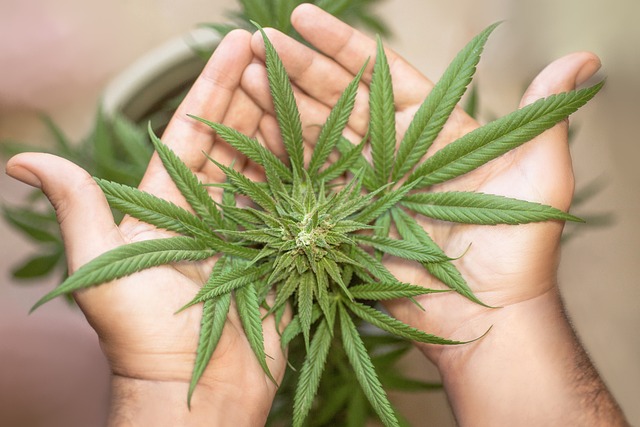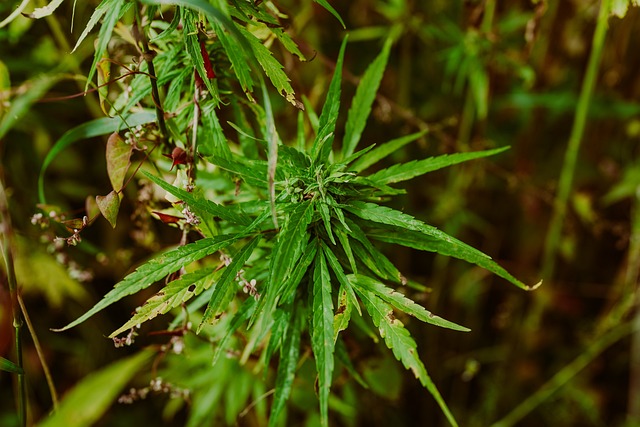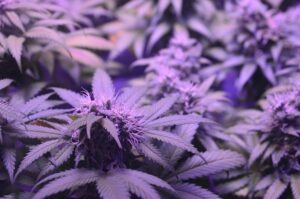
THCA flower, a non-psychoactive compound derived from raw cannabis plants, has been studied for its therapeutic benefits in managing various types of pain, including neuropathic and inflammatory conditions, as well as chronic discomfort. Unlike THC, it does not induce a high and is preferred by those who seek pain relief without cognitive impairment. THCA's anti-inflammatory and analgesic properties are believed to stem from its interaction with the endocannabinoid system via CB1 and CB2 receptors, potentially reducing inflammation and altering neural signals related to pain perception. As a natural alternative to traditional pain medications, THCA flower offers potential for pain relief with fewer side effects. Its analgesic effects are particularly promising for conditions such as arthritis and neuropathic pain, as research has confirmed its ability to suppress inflammatory responses. The growing body of evidence supports the use of THCA flower as a safe and effective option in complementary pain management strategies, emphasizing its significance in holistic health approaches for those in need of pain relief.
Discover the transformative potential of THCA flower in managing pain without resorting to traditional pharmaceuticals. This article delves into the multifaceted benefits of this raw cannabinoid, unveiling its scientific foundation and natural analgesic properties. From understanding how THCA interacts with the endocannabinoid system to exploring its anti-inflammatory effects on chronic pain, each section offers a comprehensive look at utilizing THCA flower for effective pain relief. Learn about maximizing its efficacy, the role of terpenes, legal considerations, and safety tips. Personal anecdotes, cultivation advice, and a comparison to other cannabinoid forms enrich this guide, ensuring you have all the information needed to harness the power of THCA flower for your pain management needs.
- Unlocking the Potential of THCA Flower for Pain Relief
- The Science Behind THCA and Its Analgesic Properties
- THCA Flower: A Natural Alternative to Traditional Pain Medication
Unlocking the Potential of THCA Flower for Pain Relief

The therapeutic properties of cannabis have long been recognized, with a growing interest in the potential benefits of THCA flower, particularly for pain relief. Tetrahydrocannabinolic acid (THCA), the raw, non-psychoactive form of tetrahydrocannabinol (THC), is found abundantly in raw cannabis plants and has shown promise in managing various types of pain without the high associated with its decarboxylated counterpart, THC. Studies suggest that THCA interacts with the body’s endocannabinoid system, influencing pain reception through CB1 and CB2 receptors. This interaction can be beneficial for individuals experiencing neuropathic pain, inflammatory pain, and even chronic discomfort, as it may reduce inflammation and modulate neural signals responsible for pain perception.
Incorporating THCA flower into one’s wellness regimen can offer a natural alternative to conventional pain medications, which often come with a host of side effects. Users report that consuming THCA flower through various methods, such as smoking or infusing it into edibles, can provide substantial relief without the psychoactive effects that may be undesirable during certain times of the day or for certain individuals. The anti-inflammatory and analgesic properties of THCA make it a compelling option for those seeking natural remedies for pain management. As interest in cannabinoid therapies continues to rise, the role of THCA flower in addressing pain relief needs is an exciting area of development within the holistic health community.
The Science Behind THCA and Its Analgesic Properties

Delta-9-tetrahydrocannabinolic acid (THCA), which is the raw, non-psychoactive form of the well-known cannabinoid THC, has garnered attention for its potential therapeutic properties, particularly in the realm of pain management. Emerging research indicates that THCA found in hemp flowers may exhibit analgesic effects without the psychoactive impact associated with THC. Studies suggest that THCA interacts with the body’s endocannabinoid system by binding to both CB1 and CB2 receptors, which are integral components of our physiological response to pain and inflammation. This interaction is thought to modulate neurotransmitter release and immune system responses, thereby potentially providing pain relief without intoxication.
The analgesic properties of THCA are further supported by its anti-inflammatory characteristics. Inflammation is a common underlying cause of various types of chronic pain. Laboratory studies have demonstrated that THCA possesses anti-inflammatory effects, which could be beneficial for conditions like arthritis and neuropathic pain. By targeting the inflammatory response at its root, THCA flower for pain relief offers a promising alternative to conventional pharmaceuticals, with a lower risk of side effects and potential for improved quality of life for those managing chronic discomfort.
THCA Flower: A Natural Alternative to Traditional Pain Medication

The therapeutic properties of THCA, or tetrahydrocannabinolic acid, a non-psychoactive compound found in cannabis plants, have garnered attention as a natural alternative to traditional pain medication. Unlike its psychoactive counterpart THC, THCA does not induce euphoria, making it an appealing option for those seeking relief without the mind-altering effects. Studies indicate that THCA interacts with the body’s endocannabinoid system, which regulates pain, inflammation, and the immune response. Consuming THCA flower for pain relief offers a unique approach as it harnesses the benefits of raw cannabis plants, which are rich in THCA due to their low heat exposure during cultivation and processing. The anti-inflammatory and analgesic effects of THCA are particularly beneficial for individuals suffering from chronic pain conditions such as arthritis or neuropathy. Its efficacy in managing various types of pain, including both acute and chronic discomfort, positions it as a promising option in the realm of natural remedies. Users often report that the THCA flower helps alleviate their pain without significant side effects, which is a notable advantage over some conventional pain medications that can come with a range of adverse reactions. As research continues to unfold, the potential for THCA flower as a complementary modality in pain management becomes increasingly evident.
THCA flower emerges as a promising modality for individuals seeking natural pain relief, grounded in scientific evidence of its analgesic properties. As an alternative to conventional medications, THCA flower offers a compelling option for those looking to mitigate discomfort without the potential side effects associated with traditional pharmaceuticals. The therapeutic potential of this cannabinoid is noteworthy, especially for those navigating the challenges of chronic or acute pain. Users are encouraged to explore this natural remedy responsibly and in accordance with local regulations.







